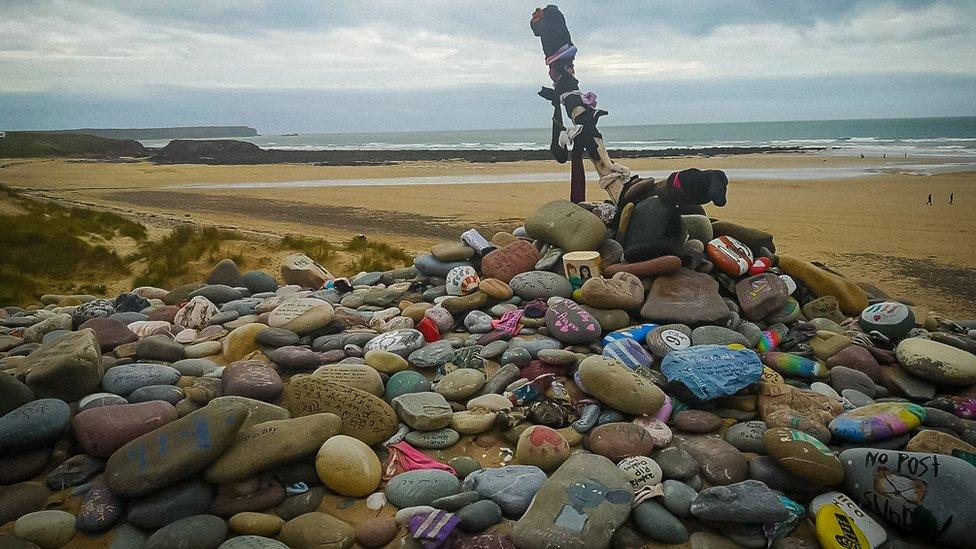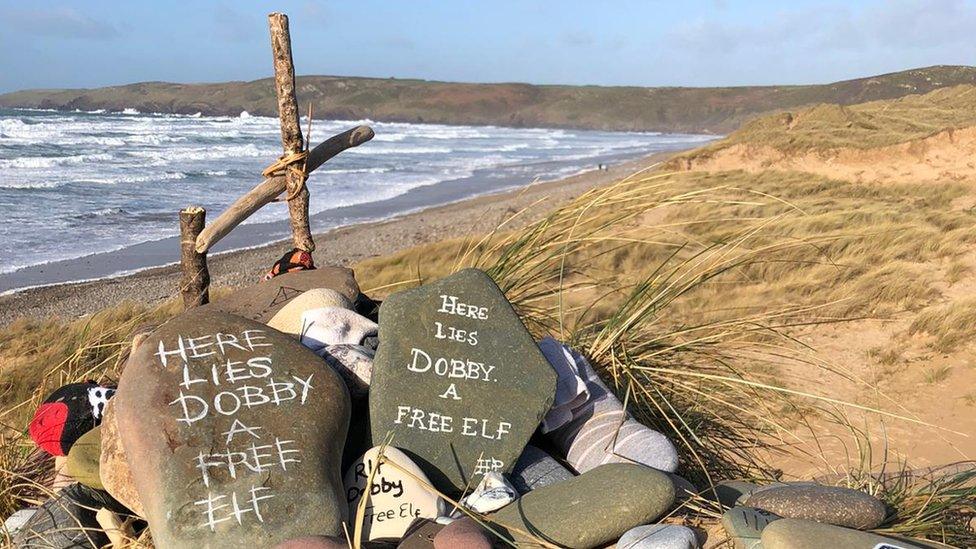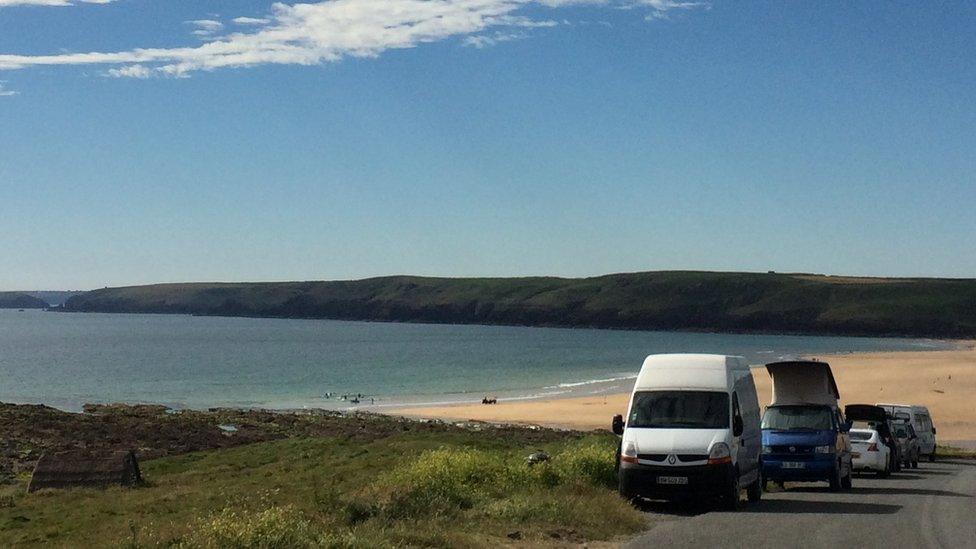Harry Potter: Dobby's grave on Welsh beach saved for now
- Published

Fans visiting the Dobby memorial at Freshwater West beach have been asked to not leave painted pebbles or trinkets
A memorial at the "resting place" of the beloved Harry Potter character, Dobby the House Elf, can remain on an environmentally sensitive beach.
Dobby's mock grave sits above Freshwater West beach in Pembrokeshire, where the character's death was filmed.
Concerns about high visitor numbers and pollution led to a survey on its possible relocation.
A consultation by National Trust Wales,, external which manages the beach, concluded it can stay "in the immediate term".

Dobby was one of the most popular characters in the Harry Potter series
"Based on the consultation results," National Trust said, "the memorial to Dobby will remain at Freshwater West in the immediate term for people to enjoy".
It encouraged visitors to protect the environment by not leaving items at the memorial.
"The trust is asking visitors to only take photos," it said. "Items like socks, trinkets, and paint chips from painted pebbles could enter the marine environment and food chain and put wildlife at risk."
A tribute to an elf named Dobby sits above National Trust-run Freshwater West beach
The survey asked 30 questions about Freshwater West, including some about traffic, parking and toilet facilities.
It also asked if Dobby's grave should be removed or transferred to a "suitable publicly accessible location off-site".
The tribute mainly consists of pebbles with messages to the elf, portrayed by Toby Jones in the film series, and socks.

In the Harry Potter series Dobby was given a sock to mark his freedom, leading fan to leave socks in tribute
In the franchise, house elves are only freed from servitude if they are given clothes.
In the second instalment, the Chamber of Secrets, Harry Potter ensures Dobby is given a sock by his owners, the Malfoy family.
The beach is a legally protected conservation area, home to a host of wildlife, including lizards, orchids and rare ground-nesting birds.
The surrounding area is home to large grey seals, harbour porpoise, and some of the largest populations of seabirds in the world.
'Parking charges'
"Freshwater West is a much-loved coastal site and over time, its beauty, expansive beach, good surf and Hollywood filming credentials have seen it become increasingly popular," said the trust's assistant director of operations in south Wales, Jonathan Hughes.
With more than 75,0000 visitors a year, he said capacity was "regularly" exceeded.
"We have to balance the popularity of the site with impacts on the sensitive nature of the beach and wider environment, and pressure on the facilities and surrounding roads," he added.
In response, the trust said it would introduce charges at the car park and create an overflow parking area on a nearby farm.
It said the money raised "would also enable us to continue to carry out important conservation work at Freshwater West".
There will also be an upgrade to an existing toilet block, with improved access for disabled people.

CELEBRATING WELSH POP: A decade-by-decade romp through the TV archives
MUSIC NATION WITH HUW STEPHENS: How did Wales become known as The Land of Song?

Related topics
- Published4 May 2022

- Published31 July 2019

- Published6 July 2019

- Published10 February 2022
